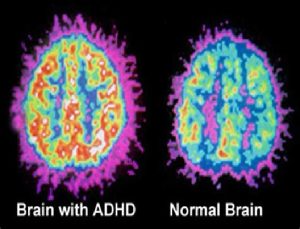Living with Borderline Personality Disorder (BPD) can be a challenging journey, marked by intense emotions, unstable relationships, and a deep sense of emptiness. However, for some people, the experience of BPD is different. They may appear to function relatively well in their daily lives, holding down jobs, maintaining relationships, and engaging in social activities. This is often called “high functioning” BPD. Let’s explore what high functioning BPD looks like, its challenges, and strategies for navigating life with this condition.
Understanding High Functioning BPD
High functioning BPD is characterized by the ability to maintain a facade that everything is fine while still experiencing the internal struggles associated with BPD. On the outside, individuals with high functioning BPD can appear successful, competent, and in control. They may excel in their careers, have stable relationships, and appear confident in social situations. Beneath the surface, they may struggle with intense mood swings, fear of abandonment, and a pervasive sense of emptiness.
One of the key features of high functioning BPD is the ability to compartmentalize emotions. People may suppress or hide their intense feelings in order to meet the demands of daily life, leading to a disconnect between their internal experiences and their behaviour, making it difficult for others to recognize the extent of their emotional turmoil.
Challenges of High Functioning BPD
While high functioning BPD may allow people to function relatively well in society, it does not mean they are free from the challenges of the disorder. The internal turmoil and emotion dysregulation characteristic of BPD are still there, often causing significant distress and impairment in various areas of life.
One of the biggest challenges of high functioning BPD is the pressure to maintain appearances. Constantly presenting a facade of calm and stability can be exhausting and isolating. People may feel like they are living a double life, hiding their true selves from others while struggling internally.
Moreover, the fear of abandonment, a core feature of BPD, can be especially distressing for those with high functioning BPD. Despite having success in many areas of life, people may still harbor deep-seated fears of rejection and abandonment, leading to challenges in forming and maintaining close relationships.
Navigating Life with High Functioning BPD
Navigating life with high functioning BPD requires a combination of self-awareness, self-care, and support from others. Here are some strategies that can help:
1. Therapy: Therapy, particularly Dialectical Behaviour Therapy (DBT), is the gold standard for treating BPD. Individuals with high functioning BPD can benefit from learning skills to manage their emotions, improve interpersonal relationships, and build resilience. Dialectical Living offers live online DBT groups as well as affordable do at your own pace online courses. Check out our offerings here: https://www.dialecticalliving.ca/services/
2. Mindfulness: Practicing mindfulness techniques can help people with high functioning BPD stay grounded and present in the moment. Mindfulness can help reduce emotional reactivity and increase emotion regulation.
3. Self-compassion: Cultivating self-compassion is essential for people with high functioning BPD. Learning to be kind and understanding towards yourself can help alleviate feelings of shame and self-criticism.
4. Social support: Building a strong support network of friends, family, or support groups can provide much-needed validation and understanding. Connecting with others who have similar experiences can help combat feelings of isolation and loneliness.
5. Setting boundaries: Learning to set and maintain boundaries is crucial for individuals with high functioning BPD. Establishing healthy boundaries in relationships can help prevent burnout and protect against feelings of abandonment.
Conclusion
High functioning BPD presents its own unique set of challenges, as people navigate the delicate balance between outward success and internal turmoil. While they may excel in many areas of life, the underlying struggles of BPD still persist, requiring self-awareness, self-care, and support from others. By seeking therapy, practicing mindfulness, cultivating self-compassion, building social support, and setting boundaries, individuals with high functioning BPD can learn to navigate life with greater resilience and stability.
If you or a loved one has high functioning BPD and you’re looking for therapy, book a free consultation with Dialectical Living today!





